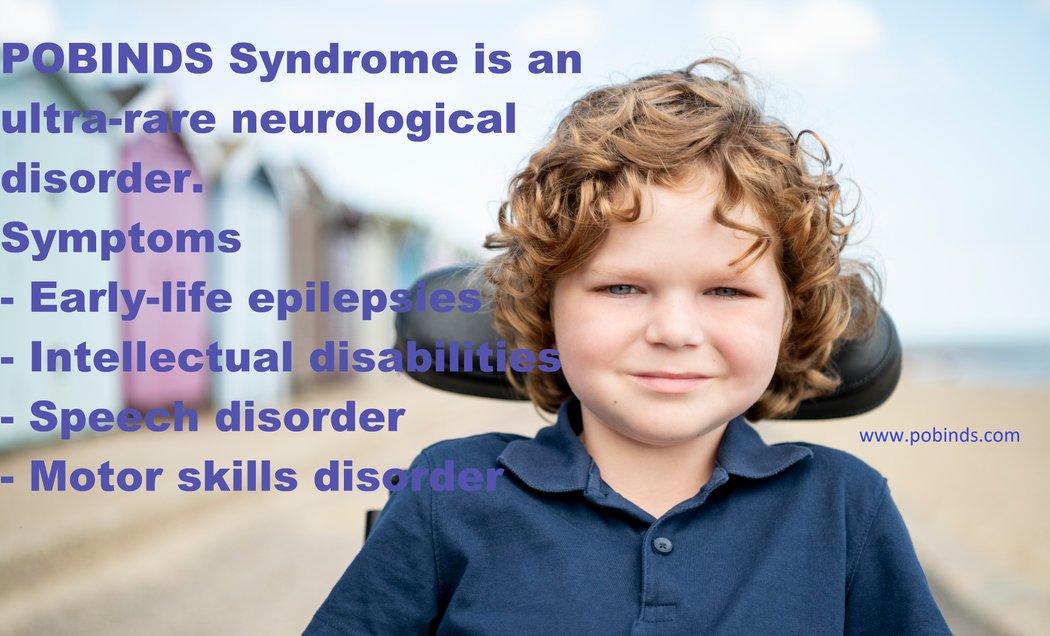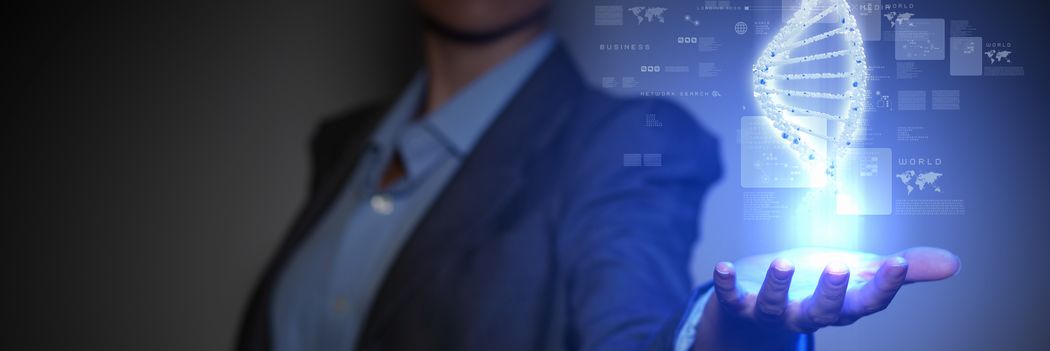
POBINDS
POBINDS Syndrome is an ultra-rare neurological disorder that is caused by a genetic mutation in a gene called CSNK2B.
POBINDS syndrome was first discovered in 2017 and there are only a few affected people diagnosed with it due to its late discovery.
The syndrome is caused by a mutation in CSNK2B gene.
Casein kinase II subunit beta CSNK2B is a gene on chromosome number 6. It regulates metabolic pathways, signal transduction, transcription, translation, and replication.
Casein kinase II has two parts. The "CSNK2A" part contains messages from the brain to different parts of the body, especially muscles. The "CSNK2B" part caries and regulates these messages. If there is a problem in the "CSNK2B" part the message might not reach its destination, reaches the wrong destination, or reaches the right destination but with a not quite right message.
Mutations in SCNK2B that causes POBINDS syndrome is characterized by:
CSNK2B missense mutation can also cause POBINDS syndrome. Missense means that a single nucleotide (code) change results in a codon that codes for a different amino acid. Example AUG... become AUT... resulting in a different genetic code.
See the education section for detailed researches done on POBINDS syndrome.
The only possible way to discover a mutation in CSNK2B is by doing a whole-exome sequencing test. Despite some facial features that are common on POBIND syndrome like an open mouth, protruded tongue, and flat eyebrows, a POBINDS syndrome child looks like any other normal child. A seizure that occurs in the first three years of life can be a sign of POBINDS syndrome.
Unfortunately, there is no cure or treatment for POBINDS syndrome yet, but there are several management methods that can ease the symptoms. See the support material section for tips and suggestions.
Speech disorder treatment methods including using sign language, oral motor exercises, facial massage, and speech therapy.
Pediatric rehabilitation methods like occupational therapy OT to improve gross motor, fine motor and motor planning, and like physical therapy PT to assess and improve muscle strength, tone, flexibility, and balance.
Individual education plan to help with areas like Dyslexia (problem to read) and Dysgraphia (problem to write).
Behavioral therapy methods that are similar to the ones used in Autism and ADHD.
Prognosis and Epidemiology
There is not enough spectrum data about POBINDS syndrome to determine exact statistics about it. But so far we saw affected children from white families from Europe and USA, Asian families from China and Japan, middle east families like Iraq, and Hispanic families like Argentine. Furthermore, we saw both girls and boys having POBINDS syndrome.
Since CSNK2B variant exists only in the affected child but not in his parents', the risk of a further child of his parents getting the same disorder is very low, 1-2%. If parents wanted, this varíant could be investigated for its presence in future pregnancies around week 11 or 12. However, the child would transfer this variant with a probability of 50% to his/her future children.
Many Universities are researching the subject. We hope to encourage more researches.
We are all on Facebook to support each other and share our stories and experiences with each other
We educate ourselves by reading the new researches and sharing informations we got from doctors.

CSNK2B mutation in children causes neurological disorders including epilepsy, intellectual disorder, speech disorder, and motor skills delay. Please help our children by funding "CSNK2B Epilepsy Research" at Vagelos College of Physicians and Surgeons, the medical school of Columbia University. Please donate here:
This website is done by a parent of a child with CSNK2B mutation and POBINDS syndrome. The purpose of it is to gather all information and publications related to CSNK2B mutation that causes neurological disorders including epilepsy, intellectual disorder, speech disorder, motor skills delay, autism or ADHD like symptoms, impulsive behaviors, coordination, and balance problems, and much more. The site goes throw many topics regarding CSNK2B gene including what types of variants mostly occur, how does the variation causes epilepsy and other neurological disorders, and why.